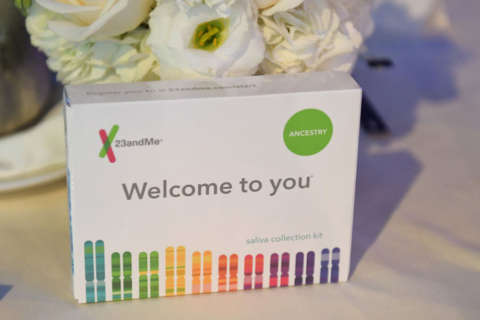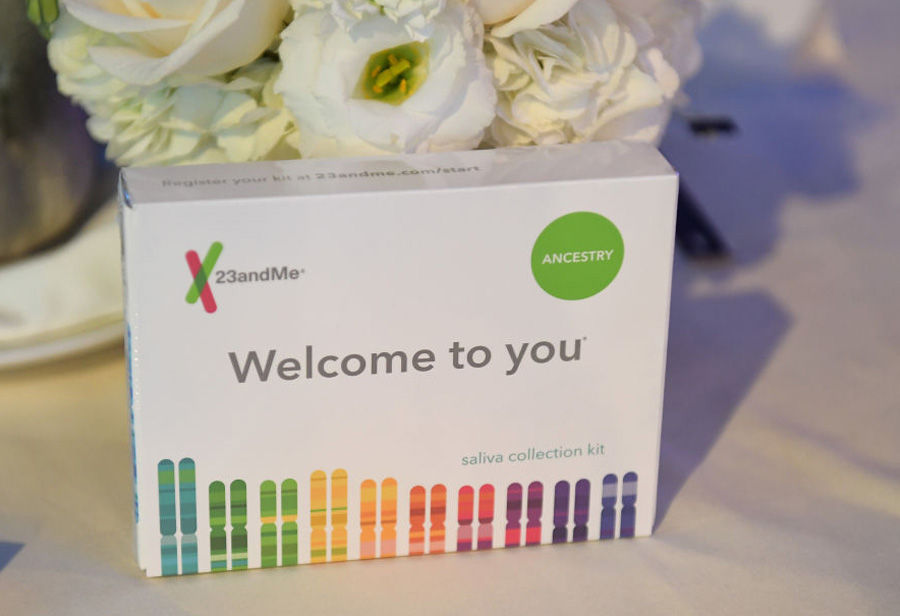
As the popularity of direct-to-consumer genetic testing kits continues to grow, it’s likely that someone you know has tried one of the at-home kits. Whether it’s to find out more about their ancestry or to get information on a disease that may run in their family, the temptation of finding answers to previously unanswered genetic questions is piquing the interest of people of all ages and backgrounds.
While there are certainly advantages to an at-home genetic testing kit, including convenience and accessibility, there are also advantages to getting genetic testing performed in a hospital or health care system setting. This route offers the support of trained health care professionals who can help effectively navigate the complexities of genetic testing.
What’s more, research backs up the idea that physician-supported testing has its advantages. A recent Boston University study in Translational Behavioral Medicine examined the challenges that can arise when people contact health care providers about their “raw” DNA interpretation results — meaning the results from the at-home tests that patients ordered for themselves. Findings show that having widespread access to personal genetic information without the knowledge of how to interpret results can lead to problems. That, however, doesn’t mean genetic testing isn’t a helpful route to take. The key is doing your homework before you start down the path of DNA investigation so you can determine the right tests at the right time based on your individual goals and engage your health care provider in the decision process.
[See: 5 Rare Diseases You’ve Never Heard of Until Now.]
Here are five things to keep in mind when considering an at-home genetic testing kit:
1. Understand what you’re getting into. Make sure you understand the different types of genetic tests available and what exactly they scan for before taking the test, so you can be prepared for the outcomes — which could include information about your risk for diseases such as diabetes, breast cancer, prostate cancer, Parkinson’s disease or Alzheimer’s diseases.
2. Keep in mind not everything is known. While genetic testing does provide insight about those diseases to which you may be predisposed, every genetic risk factor has not been identified, and other important risk factors must be considered. That’s why physicians take into consideration a number of other health-related factors when calculating risk, including family history and personal medical history. Even so, studies are still underway that examine the factors potentially associated with risk levels, so not everything is known. Understanding this will help you to manage expectations and set the stage for success in your genetic testing process so you can feel more at ease with your results in the long run.
[See: 9 Things You Didn’t Know About Sickle Cell Disease.]
3. Continue the dialogue with your doctor. If you’re concerned about an underlying genetic basis to your family and/or personal history or risk of developing a disease in general, bring it up with your doctor. Be transparent about your feelings related to your test results, and establish an open working relationship with your doctor so you feel comfortable with his or her advice as you weigh your options. This also presents an opportunity to discuss your goals related to genetic testing to see if they align with what’s possible, what positive and negative results could mean for your health care plan of action, and what additional steps may be necessary to get a full picture related to your risk.
4. Involve a genetic professional. An expert who is formally trained on how changes in one’s DNA can influence an individual’s health will aid in interpreting your results and can also provide emotional support that you may not realize you’ll need until that moment arrives. A consultation can help you understand your results and prevent possible misinterpretation. The last thing anyone wants is to walk away from their results wondering “what do I do next?” and it’s the job of a genetic counselor or geneticist to make sure that doesn’t happen. Also, a negative test result doesn’t necessarily mean you’re not at higher risk for a particular health condition. Thus, increased screening still could be appropriate, so a consultation with a health provider who has genetic expertise (such as a genetic counselor or a geneticist) can help map out your plans for any future screening.
5. Precision is everything. Precision medicine is all about individualized, personalized assessment and treatment that offers a unique care plan versus a one-size-fits-all approach. Health systems with advanced precision medicine programs, like NorthShore University HealthSystem’s Center for Personalized Medicine, can offer a wide range of assessments, and when appropriate, genetic testing for a number of diseases to ensure a complete and customized look at your unique situation. This means you’ll eventually walk away with a better understanding of your risks and customized plan of care for your overall health.
[See: Do’s and Don’ts of Home Medical Devices.]
Ultimately, involving your health care provider offers the best course of action, since you get the full picture of how your results will impact your health care journey. You’re also more likely to feel confident in the process and how to incorporate the information into the global picture of your health profile if you choose to conduct it through a hospital system, since you’ll have the guidance of experts in the field of genomics-based medicine. So if you’re thinking about picking up one of those kits that includes a vial you spit in and mail off without any upfront discussion with your doctor, think about whether you’ll feel comfortable interpreting the results on your own. Help from a health care professional may be just what you need to navigate the maze that is genomics to ensure you’re taking the appropriate steps to be proactive with your health.
Peter Hulick, MD, MMSc, FACMG is Head of the Division of Medical Genetics and Medical Director of NorthShore University HealthSystem’s Center for Personalized Medicine in Evanston, IL.
More from U.S. News
8 Tiny Lifestyle Changes That Deliver Huge Health Rewards
8 Medications That Treat Multiple Conditions
7 Ways to Get Calcium Beyond Milk
Thinking About an At-Home Genetic Testing Kit? Here Are 5 Things to Consider First originally appeared on usnews.com







